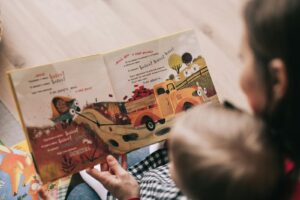We believe that supporting literacy development in children is crucial for their academic success and prospects. Focusing on literacy skills such as reading, writing, and communication can help children build a strong foundation for learning and development. We can empower children to become confident and capable learners through engaging activities, encouraging reading habits, and providing access to diverse reading materials. In this article, we will explore the importance of supporting literacy development in children and offer practical tips for parents and educators to create a literacy-rich environment for young learners. Have you ever wondered how you can support literacy development in children? We are here to guide you through the process and provide valuable tips and strategies to help children become proficient readers and writers.
Understanding Literacy Development
Before we delve into specific strategies, let’s understand what literacy development entails. Literacy encompasses a range of skills, including reading, writing, speaking, and listening. It is crucial for children’s academic success and overall well-being. By supporting literacy development in children, we can help them excel in various areas of their lives.
The Importance of Early Literacy
Early literacy skills lay the foundation for future academic success. Research shows that children who develop strong literacy skills early are more likely to succeed in school and later in life. As parents, caregivers, and educators, we are responsible for nurturing these skills in children from a young age.
Creating a Literacy-Rich Environment
One of the most effective ways to support literacy development in children is by creating a literacy-rich environment at home and in educational settings. This includes having a variety of age-appropriate books, writing materials, and other literacy resources readily available to children. We can foster a love of reading and writing by surrounding children with print materials and encouraging them to engage with them.
Reading Aloud to Children
Reading aloud to children is a powerful way to promote literacy development. When we read to children, we expose them to new vocabulary, sentence structures, and concepts. This helps expand their language skills and comprehension abilities. Additionally, reading aloud fosters a love of books and storytelling, which can motivate children to become independent readers.
Choosing Age-Appropriate Books
When selecting books for children, it is essential to choose age-appropriate materials that align with their interests and reading levels. Board books with colorful pictures and simple text are ideal for younger children. Children may be ready for more complex stories and informational texts as they age. By choosing books that cater to children’s needs and preferences, we can engage them in reading and enhance their literacy skills.
Encouraging Writing Activities
Writing activities, in addition to reading, are essential for developing literacy skills in children. Encourage children to write stories, letters, journals, and other creative pieces. Writing helps children practice spelling, grammar, punctuation, and sentence structure. It also allows them to express their thoughts and ideas meaningfully. Providing regular opportunities for children to write can support their literacy development and boost their writing proficiency.
Promoting Vocabulary Development
Building a solid vocabulary is critical to literacy development. Children with a rich vocabulary are better equipped to understand and express themselves effectively. Introduce children to new words through reading, conversations, and word games to support vocabulary development. Encourage children to use new words in context and explore their meanings. By expanding children’s vocabulary, we can enhance their reading comprehension and communication skills.
Engaging in Meaningful Conversations
Conversations play a vital role in literacy development. When we engage children in meaningful conversations, we model proper language use, encourage critical thinking, and expand their understanding of the world. Encourage children to ask questions, share their thoughts, and participate in discussions. By fostering a language-rich environment through conversations, we can help children develop strong communication skills and deepen their comprehension abilities.
Using Technology to Enhance Literacy
Technology can be a valuable tool for enhancing literacy development in children. Educational apps, websites, and digital resources can provide interactive and engaging opportunities for children to practice reading, writing, and language skills. However, it is essential to use technology in moderation and ensure that screen time is balanced with other literacy activities such as reading books and writing.
Collaborating with Educators and Professionals
Collaborating with educators, literacy specialists, and other professionals can provide valuable insights and support for children’s literacy development. Work with teachers and specialists to identify children’s strengths and areas for improvement. Attend parent-teacher conferences, literacy workshops, and other events to stay informed about best practices and strategies for supporting literacy in children. We can create a supportive and nurturing environment that fosters children’s literacy skills by working as a team.
Celebrating Literacy Achievements
Finally, it is important to celebrate children’s literacy achievements and milestones. Whether a child finishes a book, writes a story, or masters a new vocabulary word, take the time to acknowledge their efforts and successes. Praise children for their hard work and progress in literacy development. Celebrating their achievements can motivate children to continue engaging in literacy activities and inspire a lifelong love of reading and writing.
In conclusion, supporting literacy development in children is a multifaceted process that requires patience, creativity, and dedication. By creating a literacy-rich environment, reading aloud, choosing age-appropriate books, encouraging writing activities, promoting vocabulary development, engaging in meaningful conversations, using technology strategically, collaborating with professionals, and celebrating achievements, we can help children become confident and proficient readers and writers. Together, we can lay the foundation for our children’s lifetime of literacy success.



